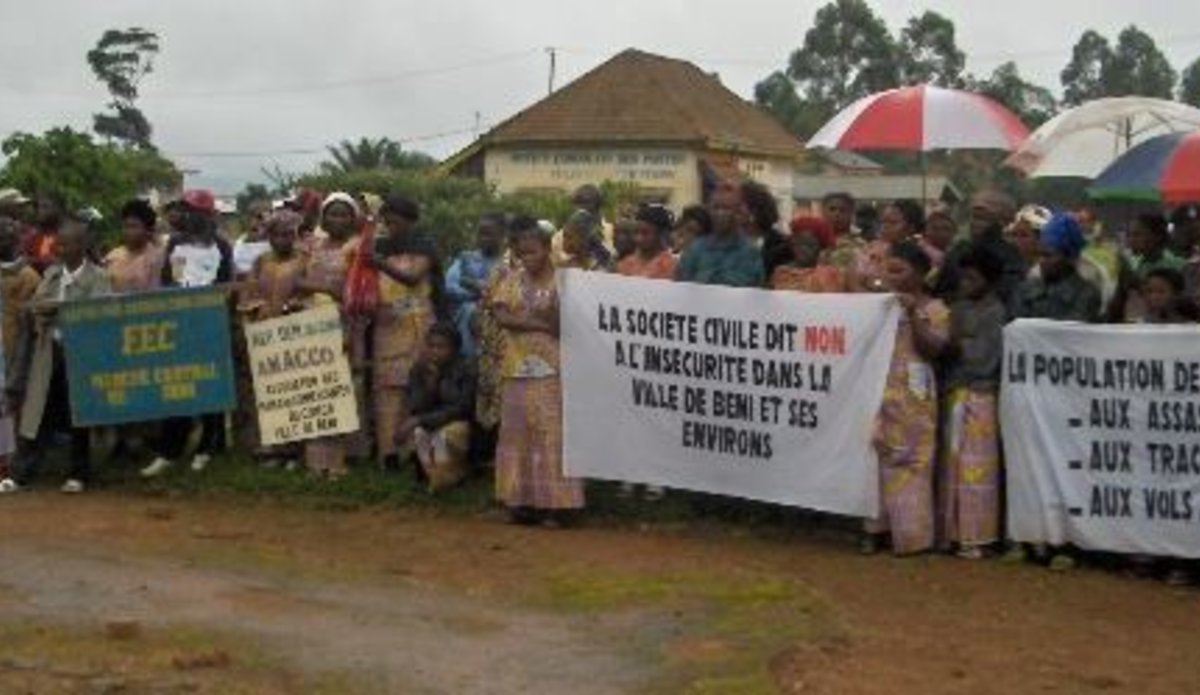The Peace process in DRC is still far to be completed given the numerous Congolese and foreign armed groups operating in the country remain as a source of insecurity as well continued large scale displacement of populations in the East, which gives rise to serious protection, humanitarian and human rights issues.
The restoration and extension of legitimate State authority to areas previously controlled by armed groups continues to pose challenges to peace, security and development in the DRC despite the establishment of newly elected government institutions at the national and provincial levels. The newly-elected authorities often lack the resources to meet the expectations of the population for the immediate delivery of tangible peace dividends. These are essential to the consolidation of peace and stability goals.
The majority of civil society organizations in the DRC face major challenges in terms of inadequate funding, lack of institutional capacity and lack of coordination both within the civil society as well as between the civil society and the Government authorities on aid effectiveness, development and reconstruction issues.
Civil Affairs Section (CAS) covers a wide-range of functions that are often at the forefront of the Mission’s interaction with local government officials, civil society and humanitarian partners within in the International Community. CAS works on social and administrative issues and sub-national political levels to facilitate the countrywide implementation of peacekeeping mandates in order to support the population and government in strengthening conditions and structures conducive to sustainable peace. As such, the work of CAS impacts multiple aspects of mandate implementation.
- Cross-mission representation, monitoring and facilitation at the local level:
Civil Affairs staff represents the mission and liaise with local actors on the full range of mission activities. CAS provides a channel for communicating the priorities and perceptions of different sectors of the population to the Mission, concerning both the mission itself and the peace process. Conditions and developments at the local level are monitored in support of political and operational work done by the mission from the national level. Conflict analysis and early warning are provided, and progress with mandate implementation is monitored.
Data collection is carried out to support mission-wide strategies and planning for mission activities or, where relevant, the strategies and activities of partners such as national/local authorities or the United Nations Country Team. As part of the overall United Nations effort, Civil Affairs takes account of existing United Nations resources at the local level and, where appropriate, may also facilitate the work of United Nations partners not represented at the local level.
Civil Affairs plays an important role in supporting coordination, cohesion and political consistency among local mission actors (including United Nations military and police components) by advising on the broader context of mandate implementation or on specific aspects of relations with civilians.
- Confidence-building, conflict management and support to reconciliation:
CAS supports the development of social conditions conducive to sustainable peace. This is pursued through support to reconciliation and conflict-resolution activities at the local and/or national level, and a fostering of popular engagement and confidence in the peace process.
These efforts are undertaken in a number of ways, including: convening or facilitating dialogue between interest groups; direct outreach to the population (working with other mission actors to design and deliver appropriate and consistent messages); support to the efforts of civil society groups seeking peace and reconciliation; the identification, implementation and monitoring of Quick Impact Projects (QIPs); and promotion or protection of the interests of excluded, threatened, marginalized or minority groups.
- Support to the restoration and extension of state authority:
United Nations peacekeeping operations contribute to the restoration and extension of state authority in a number of ways. Civil Affairs components support the development of political space at the local level that will contribute to legitimate representative governance, as well as providing operational support to the activities of state institutions where appropriate. Support to the development of political space at the local level may involve activities such as civic education and assistance with structuring or supporting dialogue between different sectors of the population (including civil society actors) and the government. Civil Affairs work is often focused on supporting participation while representative democracy is being established.
Created in the early 1990s, almost 500 Civil Affairs Section staff (composed of national, international and UN Volunteers) serve in 13 UN peacekeeping operations around the world.
 UN
UN United Nations Peacekeeping
United Nations Peacekeeping
